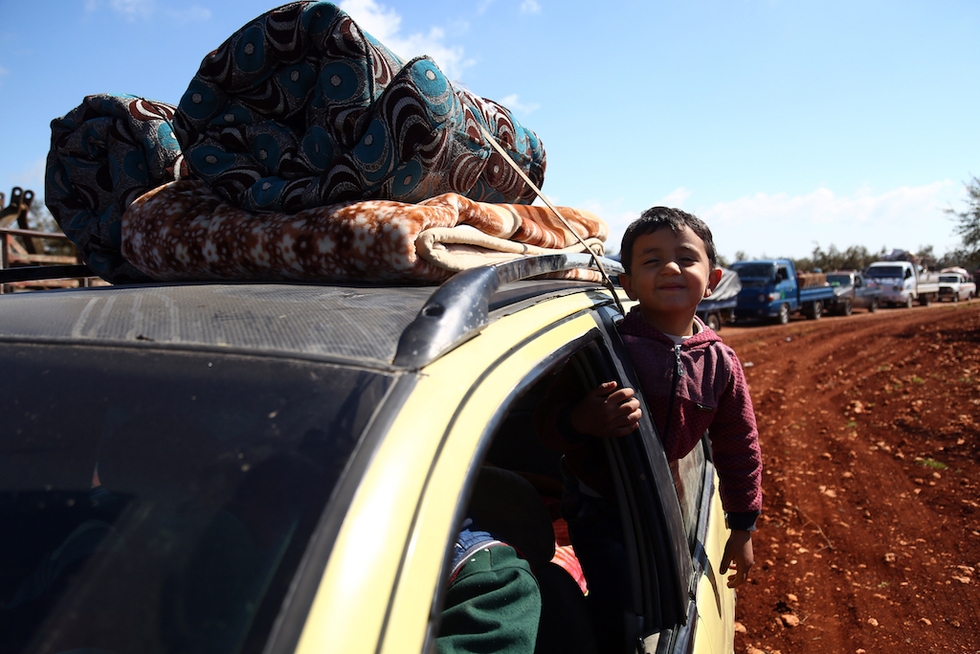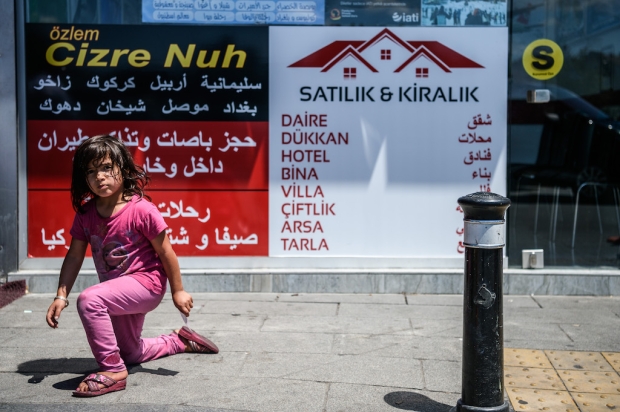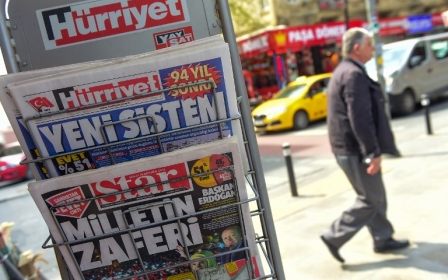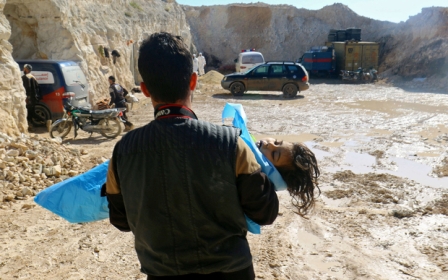'Thousands' of Syrian asylum seekers deported by Turkish security forces: HRW

Turkish security forces have intercepted and deported thousands of Syrians from the Turkish border into the war-torn province of Idlib.
A new report from Human Rights Watch has warned that border guards have shot and killed or wounded newly arrived asylum seekers from Syria, and have forcibly returned large numbers despite the ongoing conflict.
A December offensive by the Syrian government and its Russian allies has seen almost 400,000 people displaced, according to the UN. Many of those have attempted to enter Turkey through smuggling routes rather than the officially designed border crossing.
Turkey's Directorate General of Migration Management said it registered 510,448 Syrians coming through the border gate in 2017 and disputed HRW's allegations that it used violence against refugees.
Syrians interview by HRW described 137 incidents mainly between mid-December and early March in which they were intercepted by Turkish border police.
According to the report, "nine people also described 10 incidents between September and early March in which Turkish border guards shot at them or others ahead of them as they tried to cross, killing 14 people, including five children, and injuring 18."
We'll solve the Afrin incident, we'll solve Idlib, and we would like our refugee brothers and sisters to return to their own country
- Recep Tayyip Erdogan
“As border guards try to seal the last remaining gaps in Turkey’s border, hundreds of thousands of Syrians are trapped in fields to face the bombs on the Syrian side,” said Gerry Simpson, associate refugee rights programme director at Human Rights Watch.
“The EU should press Turkey to open its border to those in need, and provide meaningful support, not silently stand by as Turkey ignores refugee law and pushes thousands back to face the carnage.”
HRW urged the European Union to press Turkey to accept more refugees at a 26 March summit in Bulgaria and to promise an increase in aid to accommodate the increase in numbers.
While Turkey was criticised in the early years of the Syrian war for not enforcing controls on the border into Syria - allowing the passage of militants to join the fighting against President Bashar al-Assad - they have begun strengthening the 822km frontier with the country. As of December, almost 800km has been constructed of a border wall, according to HRW.
Rising resentment
There are thought to already be more than 3.5 million Syrian refugees in Turkey, primarily those who fled the seven-year civil war. Turkey does not officially recognise refugees from outside Europe and Syrians generally live with precarious status.
Although the country has won international praise for accommodating the large numbers, public resentment within Turkey has been building.
A new survey of Turkish public attitudes released last month by the Centre of American Progress showed that Turks of all political and social backgrounds held unfavourable attitudes towards Syrian refugees.
The polling suggested that 78 percent of Turks agreed or strongly agreed with the statement "Turkey spends too much time and money caring for refugees from other countries and should focus more on its citizens" with only 17 percent disagreeing.
Physical and verbal attacks against Syrians have increased in Turkey in recent years, with much of the vitriol coming from pro-government media outlets.
Local councils and ultra-nationalists have pushed for Arabic-language signs in Turkey, erected by Arab refugees, to be torn down with the stated aim to "protect cultural values".
The International Crisis Group has warned that resentment was most fierce in urban districts such as Sultangazi in Istanbul where "public services such as health and education, already strained by the district’s rapid expansion, have been further overstretched by the refugee influx.
"The potential for anti-refugee violence is highest in the metropolitan areas of Istanbul, Ankara and İzmir where host communities see Syrians as culturally different and resent their competition for low-wage jobs or customers, especially within the informal economy," they said in a report released last month.
Although Turkish President Recep Tayyip Erdogan previously boasted about his treatment of Syrian "guests" in Turkey, his rhetoric has changed to promises of returning Syrians to their country once security is restored.
“We are not in a position to continue hosting 3.5 million refugees forever,” he said last month.
"We'll solve the Afrin incident, we'll solve Idlib, and we would like our refugee brothers and sisters to return to their own country."
Ankara and allied Free Syrian Army rebels captured the city of Afrin on Sunday, after a two-month military operation against the pro-Kurdish People's Protection Units (YPG).
The operation saw more than 150,000 people displaced from the city.
New MEE newsletter: Jerusalem Dispatch
Sign up to get the latest insights and analysis on Israel-Palestine, alongside Turkey Unpacked and other MEE newsletters
Middle East Eye delivers independent and unrivalled coverage and analysis of the Middle East, North Africa and beyond. To learn more about republishing this content and the associated fees, please fill out this form. More about MEE can be found here.





